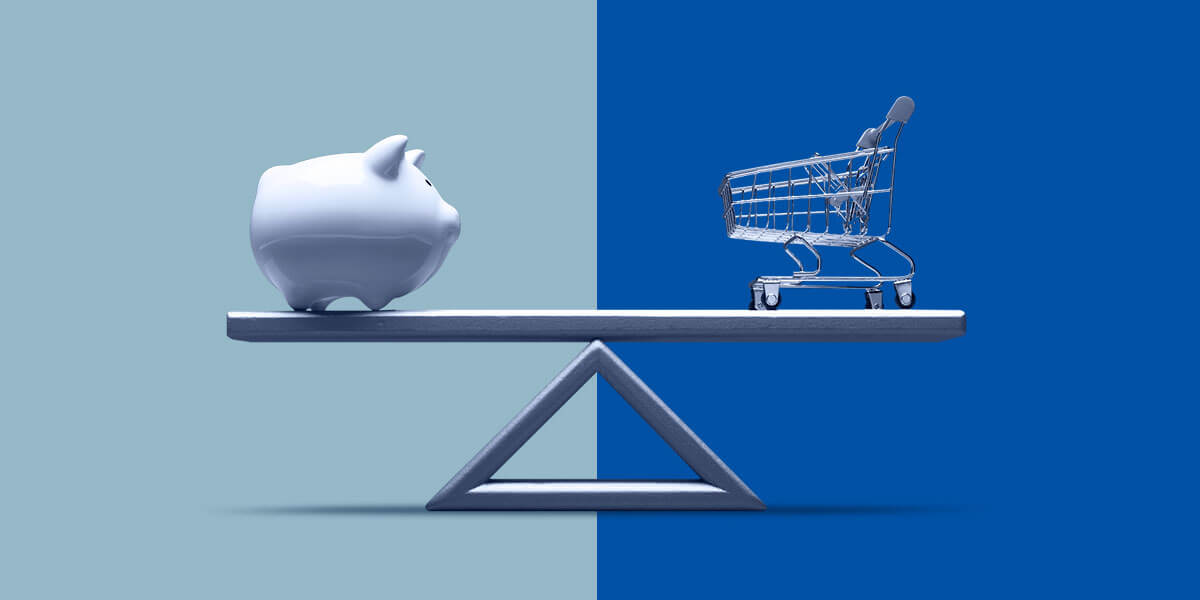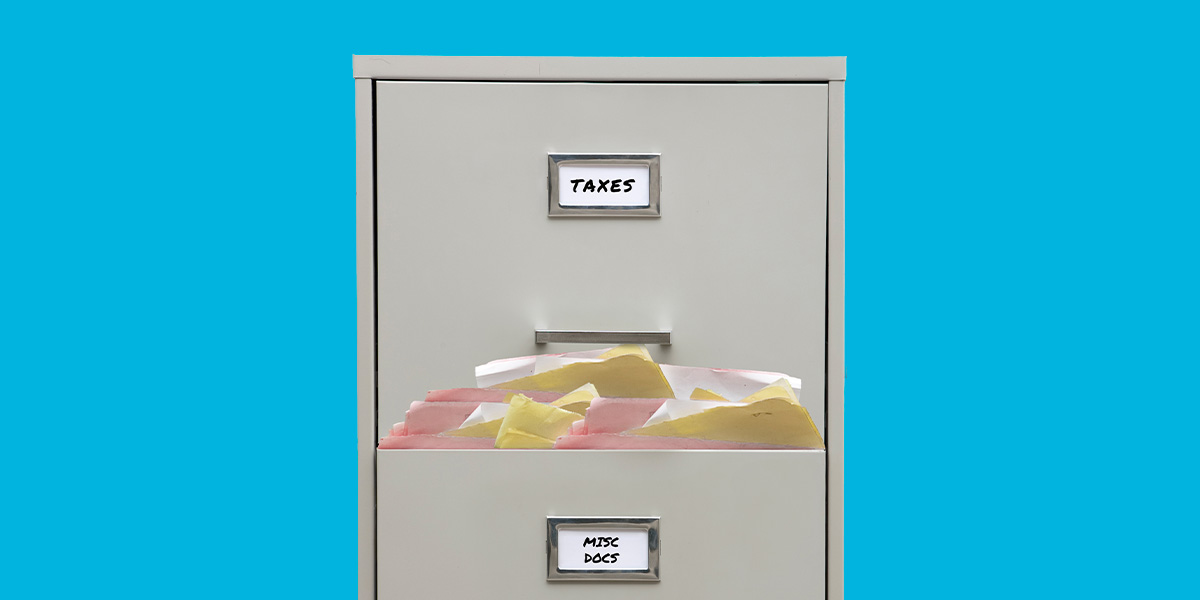-
Personal Banking -
Insights
Peer-to-Peer Fraud: How to Avoid Becoming a Victim
Peer-to-peer payment (P2P) platforms such as Zelle, Venmo, Cash App and PayPal have made it simple for people to quickly transfer money to each other and to businesses. Yet, just as with many other payment methods, these platforms and their users are susceptible to fraud. Worst of all, many users who have been scammed will be unable to get their money back once they mistakenly send it to fraudsters.
Learn more about the latest scams being used to trick you into sending swindlers your money.
What Are P2P Payments?
Peer-to-peer payments have transformed the way we handle our finances in today's digital age. P2P payments are transactions that allow individuals to transfer funds directly to one another without going through a financial institution, such as a bank. This type of transaction typically takes place through mobile P2P payment apps or online platforms.
The main draw of these platforms is the convenience they offer. In just a few taps on your smartphone or clicks on your computer, you can instantly send or receive money. No more writing checks, dealing with cash or waiting for a bank transfer.
Do P2P Platforms Protect from Scams?
P2P platforms often come with questions about security against scams. Most of these platforms, like Venmo and CashApp, employ advanced encryption methods and layers of authentication designed to keep user data safe.
While P2P platforms incorporate some security measures, users must remain cautious, especially because money cannot be recalled by a user after it has been sent. That means these platforms are often best used only to transfer funds between friends, family members and trusted individuals.
What Payment Apps Offer Buying Protection?
With P2P payments, some platforms, like PayPal, offer protection to buyers. PayPal's buyer protection is designed to protect both buyers and sellers from fraudulent activities. If a buyer does not receive an item or receives an item that differs from the seller's description, PayPal allows the buyer to dispute the transaction and potentially receive a refund.
However, some scammers will try to get people to send money as a gift — also known as the "friends and family option" — a category that PayPal does not provide any protection services for.
Protecting Yourself From P2P Payment Fraud
If you want to use P2P platforms to buy goods or services, it's important to approach transactions cautiously.
Here are some steps you can take to help prevent P2P payment fraud:
- Research the Seller: Before sending money, check the seller's reviews or feedback if available. Avoid transactions with sellers who have negative reviews or seem suspicious.
- Avoid Friends and Family Option: On some platforms, like PayPal, sending money using the "Friends and Family" option waives your right to buyer protection. Always use the "Goods and Services" option when purchasing items from strangers.
- Document Everything: Keep records of your communication with the seller, including screenshots, descriptions, prices and any other relevant details.
- Confirm Delivery Methods: Ensure that you have a clear agreement on how your purchase will be delivered, especially if it's a physical item. If possible, opt for trackable shipping methods and require a signature upon delivery.
Always be cautious, do your research, and use the built-in protections available on P2P platforms when you use them to buy goods or services.
5 P2P Platform Scams to Lookout for
While scams can take many forms on P2P platforms, there are a few common ones to watch out for. Being alert to the red flags can help protect you from falling victim to one.
Here are five common schemes to look out for that often involve P2P payments.
Utility Scams
A utility scam occurs when a scammer acts like an official from a gas, water, power or other type of utility. They often threaten to turn off a utility unless a payment is quickly made.
If someone contacts you with urgency regarding your utilities, it's best to contact your utility provider directly to confirm their claims. Never use a contact method provided by the person who initially contacted you, as that may be part of the scheme.
Marketplace Scams
Marketplace scams are common on online sale sites such as Facebook Marketplace and Craigslist. Scammers pose as sellers who ask for a payment without holding up their end of the deal. Once they receive a payment, the fake sellers disappear without delivering the products or services you purchased.
Ticketing Scams
Criminals use ticketing scams to take advantage of fans looking to attend a sports event, concert or other live production. Similar to marketplace scams, malicious sellers will promise tickets at a certain price, often disappearing as soon as the victim sends a payment. In some instances, they'll even send a counterfeit ticket that won't work once the buyer tries to enter the event.
If a price is too good to be true, it likely is. It's best to purchase tickets from reputable resale platforms that have protection policies in place for buyers.
Small Business Scams
If you own a business, you might be the target of scammers looking to take advantage of your trust. One way they do this is by sending out fake invoices with the hope that a busy owner or employee will pay them without performing any due diligence.
In some instances, a scammer will intentionally overpay for a good or service with a check or credit card. They'll then request the difference back via a P2P platform, often acting like they're trying to make things easier for everyone.
After the refund is completed, the business owner will discover that the original check has bounced, or the credit card used for the purchase was stolen, and they are out the price of the sale along with the phony "refund" money.
Pay Yourself Scam
The "pay yourself scam" is popular with scammers who are looking to take advantage of people who don't understand how their bank's P2P payment service works.
Here's what often happens:
- An individual will receive what appears to be a fraud alert from their bank. If they respond to this message, they'll be contacted by a scammer posing as a bank representative.
- The scammer will tell the victim that they need to send a payment to themselves to stop the fraud, requesting a one-time use code to help get the process started.
- The scammer uses this one-time use code to attach their bank account to the victim's P2P payment profile, intercepting the payment from the duped victim.
Remember that your bank will never call you to ask for a one-time use code and that "paying yourself" is not a way to fix or prevent fraud.
How to Know if Someone is Scamming You on a P2P Platform
Recognizing the signs of a potential scam can be key to safeguarding your transactions on peer-to-peer platforms.
Here are some tell-tale signs that someone is attempting to scam you:
- Pressure Tactics: Be wary of anyone rushing you to make a payment. Scammers often create a sense of urgency, insisting that immediate payment is necessary due to a limited-time offer or a sudden emergency.
- Vague or Incomplete Profiles: If a user's profile lacks a photo, has recently been established, and/or provides minimal personal information, it should make you skeptical and prompt more investigation on your part.
- Too-Good-to-Be-True Offers: Exceptionally low prices or offers that seem too generous may be bait to lure unsuspecting victims.
- Request for Advance Payments: Scammers may ask for upfront payments for goods or services and then vanish once they receive the money.
- Inconsistent Stories: If the reason for the transaction keeps changing or doesn't seem to add up, take that as a warning sign.
- Unusual Payment Requests: If someone asks for payment in the form of gift cards or through multiple small transactions, it's a significant red flag.
How to Help Protect Yourself
Here are some strategies to help protect yourself from falling victim to a P2P scam:
- Slow Down and ask Questions. Never be rushed into making a payment. Urgency is a tactic scammers use to steal money before the victim has time to think through. Take your time, and ask all of the necessary questions. If you detect suspicious activity, report the seller to the online marketplace or platform where you found them.
- Resist Pressure. Don't allow yourself to be bullied or pressured. Assert your right to take your time, and don't be afraid to walk away from a deal that doesn't feel right.
- Research the Seller or Buyer. Before engaging in a transaction, look into the profile of the person you're dealing with. Check reviews, ratings, and any feedback they might have received from other users.
- Secure Your Account. Regularly update your passwords and enable two-factor authentication if the payment platform offers it. This adds an additional layer of security to your account.
- Never Share Sensitive Information. Your PIN, password, security codes and other such details should remain confidential. No legitimate transaction will require that you share this information with the other party.
- Verify Before Paying. If a deal involves goods or services, ensure that you have a clear understanding of what you're getting. It might even be worth it to ask for photos or additional verification for high-value items.
- Report Suspicious Activity. If you detect any suspicious behavior, immediately report the seller or buyer to the online marketplace or platform. It not only protects you but also helps the community by flagging potential threats.
What to Do If You Have Been a Victim?
If you've fallen victim to a scam on a P2P platform, follow these steps immediately:
- Notify the P2P Platform: Reach out to their customer support or help center and report the suspicious transaction.
- Contact Your Bank: Inform your financial institution about any unauthorized transactions. They can guide you on the next steps, which may include flagging the transaction or even temporarily freezing your account for safety.
- File a Complaint: Report the incident to the FBI's Internet Crime Complaint Center, which tracks and investigates cybercrimes.
This article is for general information and education only. It is provided as a courtesy to the clients and friends of City National Bank (City National). City National does not warrant that it is accurate or complete. Opinions expressed and estimates or projections given are those of the authors or persons quoted as of the date of the article with no obligation to update or notify of inaccuracy or change. This article may not be reproduced, distributed or further published by any person without the written consent of City National. Please cite source when quoting.





